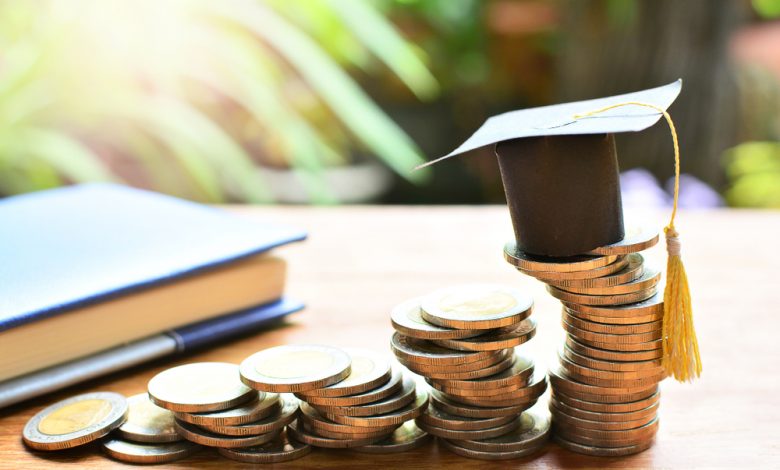
There are two issues on student loan forgiveness of which students are not aware.
- How many students realize that if they have a fixed interest rate, fixed term student loan that after the deferment, they will still have to make the same payment amount? Why? Fixed-rate and term loans are like a mortgage, and you borrow money at a specific rate and term. Paying an extra principal payment reduces your balance, but your monthly payment stays the same.
- How many students realize that loan forgiveness does not put money in their pockets. I believe many students are looking at loan forgiveness, much like some of the COVID payments from the government where they got a check for the government.
One has to wonder how students will react with no money coming from the government and their loan payments staying the same.
Recently I wrote a commentary about the Biden Administration being an inferior chess player. The student loan program is another example of it being a poor chess player. On his very first day in office, President Biden signed an executive order to stop the completion of the Keystone pipeline. Clearly, he had no idea what would happen to gas prices at the pump. His next poor chess decision was the abandonment of the airfield in Afghanistan. No attention was given to the airport's $85 billions of arms, which fell into enemy hands. Now we have the student loan ill-informed decision. The administration doesn't know how much money is involved in these loans nor where the money will come from to pay for it. When Biden suggested the program, he was talking about $300 billion. Less than a week later, we are being told it's currently up to $500 billion and appears to be going higher.
Let's see what outside one expert suggests about how much it is more likely to cost. The Wharton Business school of the University of Pennsylvania projects that the $300 billion is off, and a more feasible cost is $1 Trillion. President Biden's new student loan forgiveness plan includes three major components. They estimate that debt cancellation alone will cost up to $519 billion, with about 75% of the benefit accruing to households making $88,000 or less. Loan forbearance will cost another $16 billion. The new income-driven repayment (IDR) program would cost another $70 billion, increasing the total plan cost to $605 billion under strict static assumptions. However, depending on future IDR program details and potential behavioral (i.e., non-static) changes, total plan costs could exceed $1 trillion.
If $1 Trillion is a more realistic number, would fewer people be in favor of the paydown? Why didn't the Biden administration tell us the reliable, independent number? Perhaps the magnitude is so great that they felt the American people would be against the program, especially those who paid their student loans and are not eligible for forgiveness. Perhaps the fact that he didn't propose a bill in Congress was that he believed that there were not enough Congressmen willing to pass the bill. I wonder how many parents, grandparents, aunts, and uncles who sacrificed to send a child to school will feel cheated by this plan.
I must return to how the student loan program is being positioned by the Democrats and the press. People on the Hill are using words like handouts and payments. Bernie Sanders on "This Week" reacted to concerns from Democrats on student loan handouts: “That criticism is correct.” This illustrates my point of misdirection. The student gets no money from this deal, and the student starting college is starting an uphill battle. The following are numbers from a College Insider article written by Lynn O'Shaughnessy which was based on a report from the Federal Government US Department of Education.
O'Shaughnessy says, "A guaranteed way to cut the cost of an undergraduate degree is to graduate in four years. But the vast majority of students do not manage to graduate in four years. To be enrolled full-time, students must take 12 credits a semester. To graduate in four years, students must take and pass at least 15 credits a semester.
The official four-year graduation rate for students attending public colleges and universities is 33.3%, and the six-year rate is 57.6%. The four-year graduation rate at private colleges and universities is 52.8%, and 65.4% earn a degree in six years."
With the average tuition, room, and board rate for private schools at $45,932 per year in the 2021-22 school year over 4 years, assuming no increase, the cost would be $183,728. As noted above, only 33.3% make it in 4 years, and the data shows that only 55% make it in 6 years. Based on current costs, the extra 2 years, assuming no increases, add $91,000 more to the debt. It is easy to see that you could spend over $275,000 for a 6-year degree.
Based on the data, after 6 years of schooling, only 55% graduate. Those students who drop out before 6 years and have signed up for student loans will have to start paying them off within 6 months of leaving school.
One of the reasons why today's students need relief is that at 18, they are not mature enough to handle college and the cost to go to school. Rep Alma Adams D of NC says. "Almost 40% of borrowers with student loan debt didn't finish their degree. Now, they face the worst of both worlds: all of the debt and no degree." According to Forbes Magazine, "More than one million students drop out of college every year.”
The Biden administration was recently asked how they would pay for the $500 billion or more program, and their answer as of this publication was, “No Comment.” Students who drop out of college are almost 100 times more likely to default on their student loans than students who graduate.
If you make a commitment, regardless of the nature, for a car, a home, or a student loan, you have given your word that you will pay back that loan. Many people want to have someone else pay for their failed commitment.
I don't believe other taxpayers shouldn't be footing the bill for someone who couldn't live up to their commitments. We learn more from our failures than we do from our successes. What does a person learn about making better decisions if they look to someone else to pay for their failures?





Leave a Reply
Thank you for your response.
Please verify that you are not a robot.